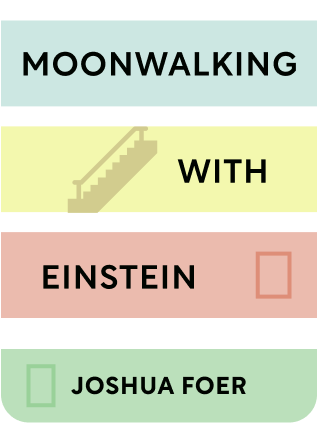

This article is an excerpt from the Shortform summary of "Moonwalking With Einstein" by Joshua Foer. Shortform has the world's best summaries of books you should be reading.
Like this article? Sign up for a free trial here .
What is the human performance lab, and do they study memory? What did Joshua Foer discover about memory at the human performance lab?
The human performance lab at Florida State University is home to many scientists and theories about humans and how they work. Joshua Foer spoke with memory expert Anders Ericsson during his research for Moonwalking With Einstein
Keep reading to find out more about what Joshua Foer learned at the Human Performance Lab.
Working With Anders Ericsson At the Human Performance Lab
Before Josh started training, he spoke to Anders Ericsson, the expert on experts. Ericsson worked at the Human Performance Lab at Florida State University and he was interested in studying Josh’s journey from beginner to expert. Josh went to Florida to have his memory tested. In exchange, Ericsson would help him with his training.
(Shortform note: To learn about Ericsson’s research on how to become an expert, read our summary of his book Peak: Secrets from the New Science of Expertise.)
The Human Performance Laboratory tested Josh’s ability to remember numbers, words, and faces. They also tested him on seemingly random things, such as definitions of obscure words and if he could visualize rotating cubes. He took a Multidimensional Aptitude Battery Information Test, which involved multiple-choice trivia questions such as how a carburetor works. Finally, they tested him on the events that would appear in an international memory competition such as spoken numbers, historical dates, and binary digits.
No one would tell Josh what any of the testing meant, but he was able to self-assess a little. Josh could remember nine digits—better than average—but he was abysmal at remembering poetry, and he was hit or miss on the trivia.
After the world championship, Josh returned to Ericsson’s lab to be retested. He retook the same tests and some new ones. He’d improved his digit span test to 18 and he could remember more poetry, names, and trivia.
The digit span test is the standard for working memory, but Josh didn’t find that his working memory had doubled. He still didn’t remember things he couldn’t put into a memory palace, and he didn’t remember things he hadn’t been paying attention to in the first place. Only a few days after the world championship, he forgot he’d driven to a restaurant and took the subway home, leaving his car behind.
Ericsson thought Josh was unusual in that he committed to the practice required to improve his memory, but any motivated college student could have achieved the same results.
Final Reflections
After he’d finished at the Hunan Performance Laboratory, Josh thought he could further improve at the memory arts if he put more time into them, but he ultimately decided to stop competing. A fellow competitor acknowledged that Josh could probably find better ways to spend his time than training intensely for another year.
Josh never got rid of his notebook or Dictaphone, and he only memorizes things if he doesn’t have a phone or pen handy. The memory techniques worked for him, but he found they weren’t very necessary in his day-to-day life in the modern world.
Josh found that the most valuable thing he learned about memory is that it shapes our characters—we see the world and interact with it based on what and how we remember. Memory is about finding connections between things, creating new ideas, and being mindful—you can only remember things you were paying attention to in the first place. External memories can keep track of schedules or groceries, but they don’t make creative connections the way people’s memories do. An external memory doesn’t create art or jokes. Our internal memories are at the core of what makes us human.
The Human Performance Laboratory is home to many scientific discoveries, including memory and how it works.

———End of Preview———
Like what you just read? Read the rest of the world's best summary of Joshua Foer's "Moonwalking With Einstein" at Shortform .
Here's what you'll find in our full Moonwalking With Einstein summary :
- The memory techniques that took the author from novice to US memory champion in one year
- The 6 key types of memory we use everyday
- Why memory isn't just genetic, and how you can improve your memory with the right techniques






